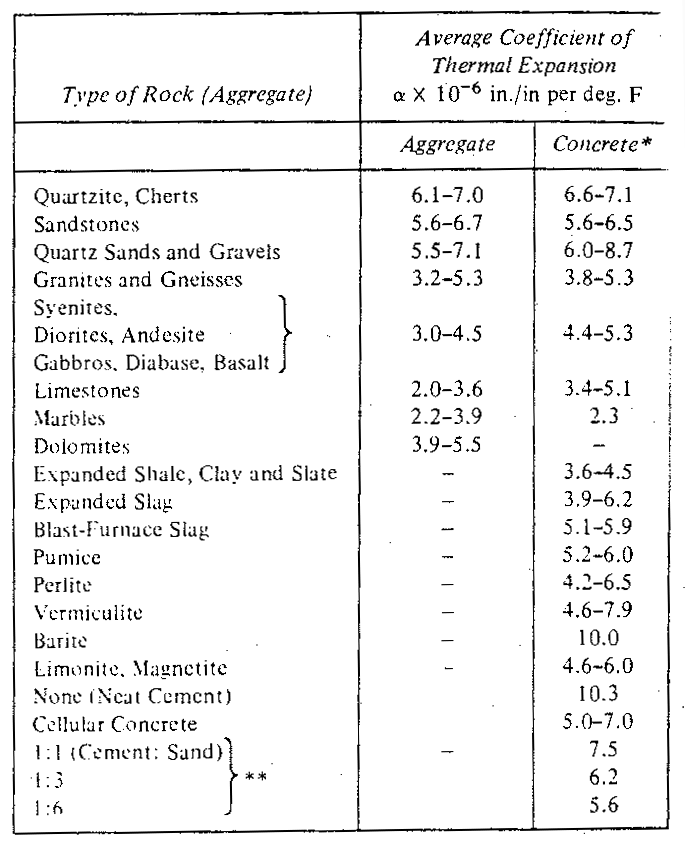 the
type of aggregate because of the large differences in the thermal properties
of various types of aggregates, and because the aggregate constitutes from
70 to over 80 percent of the total solid volume of the concrete. Siliceous
aggregates such as chert, quartzite, and thermal coefficients of expansion
between 2.5 and 3.6 millionths per degree Celsius, while the coefficients
for pure limestone, basalt, granite, and gneiss may vary between 0.7 and
2.5 millionths per degree Celsius. Further, single-mineral crystals may
have different coefficients along three different axes. As an example,
feldspar has values of 5.4, 0.3, and 0.6 millionths per degree Celsius
along three different axes. An estimated value of the coefficient of thermal
expansion for concrete may be computed from weighted averages of the coefficients
of the aggregate and the hardened cement paste.
the
type of aggregate because of the large differences in the thermal properties
of various types of aggregates, and because the aggregate constitutes from
70 to over 80 percent of the total solid volume of the concrete. Siliceous
aggregates such as chert, quartzite, and thermal coefficients of expansion
between 2.5 and 3.6 millionths per degree Celsius, while the coefficients
for pure limestone, basalt, granite, and gneiss may vary between 0.7 and
2.5 millionths per degree Celsius. Further, single-mineral crystals may
have different coefficients along three different axes. As an example,
feldspar has values of 5.4, 0.3, and 0.6 millionths per degree Celsius
along three different axes. An estimated value of the coefficient of thermal
expansion for concrete may be computed from weighted averages of the coefficients
of the aggregate and the hardened cement paste.
It has been suggested that significant internal stresses due to temperature variations may develop because of differences in the thermal coefficients of the cement paste and the aggregate. The relative importance of this thermal incompatibility and its effect on durability is in some doubt.